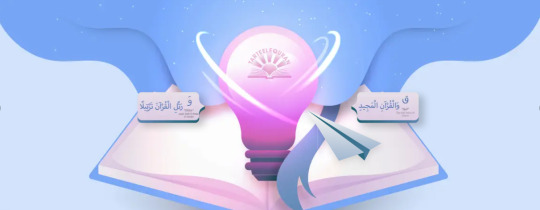#Learn Quran for Adult
Explore tagged Tumblr posts
Text
0 notes
Text
Mastering Faith: Prayer Lessons for Adults and Understanding Salat Prayer Times

Many folks in the hectic society of today have a desire to re-establish their religion but don't know where to begin. Learning how to pray could seem daunting whether you are a new Muslim or someone returning to regular practice. Fortunately, prayer lessons for adults are meant to lead you step-by-step so that you may grow a genuine relationship with Allah via Salat.
Visit Us: https://www.ganjingworld.com/news/1hl7mt8eunj3fLsfugzT0XQ5W14m1c/mastering-faith-prayer-lessons-for-adults-and-understanding-salat-prayer-times
#prayer lessons for adults#learn quran online#online quran classes for kids#learn quran online for kids#quran for beginners#quranquotes
0 notes
Text

Learn Quran Online Academy UK is leading the charge in this educational revolution, offering a modern approach to Quranic studies that transcends geographical boundaries and embraces the digital age.
#online quran tutor#online quran academy#online quran classes#online quran teaching#online quran lessons#online quran academy usa#online quran teacher#learn Quran Online#learn Quran Online UK#learn quran for kids#learn Quran Online for adults
0 notes
Text

Hijab Butch Blues: A Memoir
Lamya H
When fourteen-year-old Lamya H realizes she has a crush on her teacher--her female teacher--she covers up her attraction, an attraction she can't yet name, by playing up her roles as overachiever and class clown. Born in South Asia, she moved to the Middle East at a young age and has spent years feeling out of place, like her own desires and dreams don't matter, and it's easier to hide in plain sight. To disappear. But one day in Quran class, she reads a passage about Maryam that changes everything: When Maryam learned that she was pregnant, she insisted no man had touched her. Could Maryam, uninterested in men, be . . . like Lamya? From that moment on, Lamya makes sense of her struggles and triumphs by comparing her experiences with some of the most famous stories in the Quran. She juxtaposes her coming out with Musa liberating his people from the pharoah; asks if Allah, who is neither male nor female, might instead be nonbinary; and, drawing on the faith and hope Nuh needed to construct his ark, begins to build a life of her own--ultimately finding that the answer to her lifelong quest for community and belonging lies in owning her identity as a queer, devout Muslim immigrant. This searingly intimate memoir in essays, spanning Lamya's childhood to her arrival in the United States for college through early-adult life in New York City, tells a universal story of courage, trust, and love, celebrating what it means to be a seeker and an architect of one's own life.
(Affiliate link above)
#queer history#lgbt#queer#lgbt history#making queer history#queer books#lgbt books#hijab butch blues
2K notes
·
View notes
Text

You ever think about the hadith
خيركم من تعلم القران وعلمه
Before I started to teach, I used to think it’s quite straightforward, learn the Quran and then teach it right?
It’s one thing to teach adults, because they would willingly come to you and learn, but kids, that’s the one responsibility I find quite interesting سبحان الله. You become an associated object to the Quran for kids/teeenagers that you might forget but they won’t forget you. It is a big responsibility, to give kids/young adults, a good relationship with the Quran, being strict at the appropriate timings, and not being too lenient accordingly. Fear of not being fair and sometimes these teenagers would hate you سبحان الله، all because you see the ability they have and you’re trying to push them to have a daily relationship with the Book Of Allah. It is truly amazing to me when I see teachers, that successfully give a beautiful experience to kids/teenagers with regard to the Quran. May Allah عَزَّ وَجَلَّ reward them for it. It breaks my heart when I see that I don’t do that and focus more on تصحيح, I mean it is my job to fix their mistakes but it’s even more of a duty for me to make them love the Words of Allah. You raise a generation that strives to act by the Quran and hold firm to the Words of Allah, little by little by the small seeds you sow here and there or you make them have a bad association with the Quran because of your actions
خيركم…
181 notes
·
View notes
Text
A queer hijabi Muslim immigrant survives her coming-of-age by drawing strength and hope from stories in the Quran in this daring, provocative, and radically hopeful memoir. When fourteen-year-old Lamya H realizes she has a crush on her teacher--her female teacher--she covers up her attraction, an attraction she can't yet name, by playing up her roles as overachiever and class clown. Born in South Asia, she moved to the Middle East at a young age and has spent years feeling out of place, like her own desires and dreams don't matter, and it's easier to hide in plain sight. To disappear. But one day in Quran class, she reads a passage about Maryam that changes everything: when Maryam learned that she was pregnant, she insisted no man had touched her. Could Maryam, uninterested in men, be . . . like Lamya? From that moment on, Lamya makes sense of her struggles and triumphs by comparing her experiences with some of the most famous stories in the Quran. She juxtaposes her coming out with Musa liberating his people from the pharoah; asks if Allah, who is neither male nor female, might instead be nonbinary; and, drawing on the faith and hope Nuh needed to construct his ark, begins to build a life of her own--ultimately finding that the answer to her lifelong quest for community and belonging lies in owning her identity as a queer, devout Muslim immigrant. This searingly intimate memoir in essays, spanning Lamya's childhood to her arrival in the United States for college through early-adult life in New York City, tells a universal story of courage, trust, and love, celebrating what it means to be a seeker and an architect of one's own life.


137 notes
·
View notes
Text
Asmodeus - Day 47
Race: Tyrant
Alignment: Dark-Chaos
June 4th, 2024

When one thinks about traditional demonic names, among the 'star'-studded ranks of Belial, Beelzebub, or Mammon, one other stands out among the rest- a demon representing lust and one of the seven princes of hell, Asmodeus. Despite appearing in only a few stories of Abrahamic faith, Asmodeus is a well known demon whose popularity cannot go understated- whether it be adult animated TV shows or demonic dating games, Asmodeus is a prevalent demon in pop culture. But why is this the case? Why does Asmodeus rise above his peers? And why did he try to take Isabeau as a bride? I can answer two of those questions, but Jury's out on the bride one. I think he just likes tomboys. Let's try this demonic jailer in the court of Law and Chaos!
As with many demons in Abrahamic religions, Asmodeus first appears in relation to, who else, but everyone's favorite historical demon summoner, King Solomon. Primarily appearing in several stories throughout the Talmud, but also appearing in the Quran and a few stories in the Book of Tobit, a Christian book of dubious canonicity (typically only in a second canon, not the primary one,) Asmodeus is one of the 7 Kings of Demons, representing the deadly sin of Lust. Interestingly, this title wasn't given in many of his stories- in fact, there's reason to believe he initially represented the sin of Wrath before Satan came around and swooped it away. Asmodeus's name originates from 'Asmodai,' which has been stipulated to originally be "aēšma-daēva (𐬀𐬉𐬴𐬨𐬀𐬛𐬀𐬉𐬎𐬎𐬀)" which roughly translates to 'Wrath-Daēva.' As a result of this, in Zoroastrianism, their equivalent to Asmodeus, Aēsma, is a daēva whose domain is that of wrath.
Now, Asmodeus himself has a collection of different retellings of one primary story himself- for the most part, this demon appears in the Book of Tobit as the primary antagonist throughout, working to sabotage the protagonist Sarah in her attempts to get a child. Sarah, daughter of Raguel, a character who is... less a character, and more of a general name given to several figures? Thanks for making my job easy, Christianity. Anyway, Sarah had been trying for a baby for a while, but after 7 consecutive husbands went conspicuously missing almost immediately post marriage, she began to grow suspicious. (Why didn't she just try to have sex before marriage? Uh, Christianity, I guess?) However, an eighth husband would show himself- a young man by the name of Tobit! And thankfully, he has a plan, courtesy of an attendant angel, Raphael.
Somehow, by placing a fish's heart on burning coals, a smoke emerges that is so powerful it scares the encroaching Asmodeus all the way into Egypt. Once in Egypt, the demon is bound and sealed away. It's believed that the reasoning for Asmodeus preying on the suitors of Sarah is due to them marrying her simply to pursue their lustful desires, while Tobit outwits him due to being pure of mind. This legend, and corresponding idea, is also where the general consensus of Asmodeus being the demon of Lust originates. Not him being horny.
As opposed to his role in the Book of Tobit, Asmodeus appears as a far more jovial character in the Talmud, starring in stories which depict him less as outright evil and more as just a guy doing his god-damned job, as a lighthearted and good-natured man who just so happens to be a demon. The myriad of stories involving Asmodeus in the Talmud can actually tend to be rather humorous in nature, such as one in which Solomon ends up tricking the demon into helping build his temple and another in which, likely as revenge, Asmodeus ends up launching the king a long way from his kingdom and takes over for a year until Solomon returned, wherein the Demon did a fine job ruling until he fled upon learning of the return of the king. These sets of stories combined with his role in the Book of Tobit eventually placed him as a king of hell in a rather prevalent demonic compendium, though maybe not the one you were expecting.
As opposed to the Ars Goetia, Asmodeus actually appears in the Malleus Maleficarum, wherein he is considered the demon of lust and assigned an adversary in the form of St. John. It's in this compendium that he is also given the title as one of the kings of hell, wherein he overrules the gambling holes of hell. It's worth remembering that the deadly sin of Lust doesn't necessarily mean sexual gratification- it can mean a strong and intense desire for anything, including money. Yes, that gives it some overlap with Greed, but Lust differentiates itself by being a desire so overwhelming it's impossible to escape from, instead of Greed being a desire wherein one wants more and more.
However. He does appear in the Ars Goetia!!! CHEERING CHEERING YIPPEE!!!!!!!! Appearing as the demon Asmoday, he is depicted as the 32nd demon in the text, governing 72 legions of demons and being an incredibly powerful demon with the appearance of a man with three heads- one of a bull, another of a man, and the third being a goat. Unfortunately, the text doesn't delve that deep into this demon, simply bearing a powerful spear and an infernal dragon he rides upon.

So! How is he depicted in the series? Unfortunately, Asmodeus, in spite of how common he is in other demonic compendiums, makes only scant appearances throughout the series. Being a major boss in II and IV, as well as being Kamoshida's boss form in Persona 5, he mostly appears as a powerful demon in one form or another. Being a boss fight and being Asmodeus go hand in hand in the series, basically. Every design of this demon is different from the last, and, well, none of them are too accurate to every common depiction, but I can't blame the artists. This is a very, very hard design to make look good, so a majority of the time, they don't really bother.


The closest they get is his design in SMT II, but even then it differs greatly from each major depiction of Asmodeus. Again, though, I can't really blame them. As a powerful boss monster in most of the series, they work hard to make this demon actually intimidating, and I gotta give them props. My personal favorite design of Asmodeus has to be in IV, however, just due to it looking cool as hell.
This lustful king of hell gets a B+. Still don't know why he tried to take Isabeau as his bride though.
22 notes
·
View notes
Text
youtube
TOP Quran Classes is a leading provider of Quran memorization for adults and Quran memorization for kids. We provide a high-quality learning experience of the Quran through individual online classes with Arab male and female teachers
Our Contact Info:
email: [email protected]
Phone: +20 108 097 32710
website: https://topquranclasses.com/
Our socials:
https://www.facebook.com/Topquranclasses-116472723523058/
https://www.instagram.com/topquranclasses/
https://twitter.com/top_quran
https://www.youtube.com/channel/UCw3l_Yf63kUvEy4zQtxDdCw?view_as=subscriber
2 notes
·
View notes
Text
I feel like people have a complete misconception about Islam.
Of course there are extremists in every nation, but you can't put every person of a certain religion, ethnic group in the same category.
Let's start with the Quran. The Quran can't just be translated into English, the meaning of the words and phrases it all gets lost in translation.
Linguistic problems include the lexicon, morphology, syntax, text differences, rhetorical differences, and pragmatic factors. Human translation of Arabic into English is difficult enough, but machine translation presents even more problems when translating between these two languages. The translation must be faithful to the original text in terms of both meaning and style. The translation should mirror the original meaning.
In saying this, I think if you really want to learn anything, you need to dig and do proper research, google is not a good source, I have found that Google has a lot of misinformation.
Talking to someone who is in fact Muslim. Talking to people will teach you way more than anything else.
https://www.fairobserver.com/region/europe/fake-news-islamophobia-racism-muslims-islam-british-uk-latest-news-54784/#
Let's start with the prophet Muhammad.
A lot of people think that he married a 6 year old girl. That is not true.
There is a lot of misinformation on the internet about this subject.
This is what I learned.
Let's get straight to the point.
Firstly, the Quran indicates that there is an “age of marriage” (4:6) when both consenting partners are mature physically and mentally to enter into the legal contract of marriage.
We all know that
The bigots and haters who bring up this issue in
Debates again and again, are not interested in knowing the facts about Aisha and her age at the time of marriage,
But their agenda is to
Desperately, "prove" that
Prophet Muhammad was a lust-driven, sinful and
Unethical person.
But I am hoping to share some information that will help.
I find the explanation of
Myriam Francois-Cerrah
Most apt on this issue. So I quote her directly from her article in The Guardian (17th Sep 2012).
"Since the early Christians heralded Christ as a model of celibate virtue,
Muhammad - who had
Married several times-
Deemed to be driven by
Sinful lust.
This portrayal ignored the fact that before
His marriage to Aisha,
Muhammad had been
Married to Khadija, a
Powerful businesswoman 15 years his senior, for 25
Years.
When she died, he was devastated and friends
Encouraged him to remarry.
"What the records are clear on is that Muhammad and
Aisha had a loving and
Egalitarian relationship,
Which set the standard for reciprocity,
Tenderness and
Respect enjoined by the
Quran. Insights into theirs
Relationship, such as the fact they liked to drink out of the same cup or race one another, is indicative of a deep connection which
Belies any misrepresentation
Of their relationship."
To paint Aisha as a victim is completely at odds with the person she was. During a controversial battle in Muslim history, she emerged
Riding a camel to lead the
Troops.
She was known for her assertive temperament
And mischievous sense of
Humor – with Muhammad.
Sometimes bearing the brunt Of the jokes. During his Lifetime, he established her
Authority by telling Muslims To consult her in his absence. After his death, she went to be become one of the most prolific and distinguished scholars of her time."
Which means she was definitely not a 6 year old girl. She was of adult mind. I have reached the conclusion that she was anything between 16 and 19 years old when she got married.
I will post some articles from Muslim scholars who are trying to rectify some of the misinformation.
https://www.counterview.net/2022/06/hazrat-aishas-age-was-16-not-6-weak.html?m=1
https://www.islamicity.org/11238/10-misconceptions-about-islam/
May Jesus have been Palestinian? He may very well be.
"Most religious scholars and historians agree with that the historical Jesus principally spoke a Galilean dialect of Aramaic. Through trade, invasions and conquest, the Aramaic language had spread far afield by the 7th century B.C. and would become the lingua franca in much of the
Middle East."
Who still speak this language? This is what I found.
"Jewish Palestinian Aramaic is the term most frequently used today to describe the Aramaic written and spoken by Jews in Palestine during the Byzantine Period."
Historical records as well as genetic studies indicate that modern Palestinians, mostly descend from local ancient Levantines who converted from Judaism and other Levantine mythologies to Christianity and later to Islam. The researchers also determined that the Canaanites - who frequently appear in ancient sources, including the Bible - descended from a mixture of an earlier Levantine population and migrants coming from the Caucasus region or modern-day Iran.
So my question is, are the Palestinians the Jews from the Bible?
Can't say for sure.
But what I have learned is that Muslims are a peaceful religion.
They fight back only when they are being attacked, they have morality, integrity and most people's hate is due to brainwashing and ignorance.
I find it ironic that the people who are always going on about their rights to make their own decisions and literally have lost most of their morals want to tell others how wrong and evil they are. You have the right to choose. But every decision has consequences.
Before you think you know everything, do your research and forget what you were taught.
4 notes
·
View notes
Text
LEARN QURAN ONLINE IN UNITED KINGDOM MODERN WAYS OF LEARNING QURAN IN UK
This is particularly true in the field of education, as the use of digital platforms has transformed the way that people learn. Studying the Quran, the sacred book of Islam, is one such custom that has adapted to the digital age with ease. The advent of online Quran learning platforms in the UK has not only made the text more accessible, but it has also allowed a wide variety of learners to study the text from the comfort of their own homes. The UK is a multicultural hotspot with a sizable Muslim community made up of people from all walks of life and ethnic backgrounds. Many have found it difficult to obtain real Islamic education because of distance or a lack of resources in the area. However, these obstacles are progressively disappearing as a result of the development of online Quran learning resources. With the ability to communicate with knowledgeable academics and instructors from anywhere in the world, learners can now participate in a virtual global classroom where knowledge is boundless. The freedom that comes with studying the Quran online in the UK is one of its main benefits. Many people find it difficult to routinely attend in-person classes due to their hectic schedules and many responsibilities. Online learning environments solve this problem by offering customizable timetables that let students adjust their coursework to fit their schedules. Learners can access courses and lectures at their desired hours, which guarantees that religious education easily integrates into their daily routines, whether it's early in the morning before work, late at night after family time, or on the weekends. Encounters. Digital platforms recognize that every student has different learning goals and needs, and they address these by providing individualized curricula and one-on-one tutoring sessions with knowledgeable instructors. This individualized method allows students to interact with the Quran on a deeply spiritual level while also improving understanding and fostering a closer bond with the holy book. preserving linguistic and cultural diversity is an important part of online Quran learning in the United Kingdom. These platforms cater to a varied student body and provide courses in multiple languages, enabling learners from diverse ethnic backgrounds to access the Quranic teachings in their native tongue. In addition to fostering linguistic diversity, this inclusion helps communities feel proud of their cultural heritage and a sense of belonging.Moreover, Quran study programs that are accessible online maintain the greatest standards of academic validity and honesty. Courses are taught by certified instructors and recognized academics, guaranteeing that students learn the Quranic text with accuracy. Furthermore, cutting-edge technical tools like virtual classrooms, interactive whiteboards, and audiovisual aids improve learning and make it more immersive.
All things considered, the advent of online Quran instruction in the United Kingdom is a beautiful fusion of history and contemporary culture. These platforms are leveraging the power of digital technology to dismantle obstacles to access, promote inclusivity, and provide people the ability tofrom wherever they may be, set out on a spiritual enlightenment journey. The field of Islamic education is set for significant change as a result of the ongoing advancements in technology. This bodes well for a time when everyone who aspires to wisdom and understanding will have access to the precious lessons of the Quran learning online
0 notes
Text
Mastering Faith: Prayer Lessons for Adults and Understanding Salat Prayer Times

Many folks in the hectic society of today have a desire to re-establish their religion but don’t know where to begin. Learning how to pray could seem daunting whether you are a new Muslim or someone returning to regular practice. Fortunately, prayer lessons for adults are meant to lead you step-by-step so that you may grow a genuine relationship with Allah via Salat.
Visit Us: https://medium.com/@tarteelequranau/mastering-faith-prayer-lessons-for-adults-and-understanding-salat-prayer-times-d3a3b38bbfc3
#prayer lessons for adults#online quran classes for beginners#online quran classes for kids#learn quran online
0 notes
Text
#online quran tutor#online quran academy#online quran classes#online quran teaching#online quran lessons#online quran academy usa#online quran teacher#learn Quran Online#learn Quran Online UK#learn Quran Online for kids#learn Quran Online for adults
0 notes
Text
Introduction:
One such phrase is "Insha'Allah," which is commonly used by Muslims around the world. In this blog post, we will explore the meaning of "Insha'Allah" and discuss the appropriate ways to use it in different contexts.
Insha'Allah Meaning:

What does "Insha'Allah" mean? The term "Insha'Allah" is an Arabic phrase that translates to "if Allah wills" or "God willing." It reflects a belief in the divine will and acknowledges that all actions are ultimately subject to Allah's approval and control. When using this phrase, Muslims express their humility and recognition of Allah's sovereignty.
How to Write Insha'Allah:
To write "Insha'Allah," it is essential to understand the correct spelling and usage. The phrase is commonly written in different variations, including "Insha'Allah," "Inshallah," or "Insha Allah." It is often preferred to write it with the apostrophe (') between "Insha" and "Allah" to signify the omission of certain letters. This serves as a mark of respect for the name of Allah.
How to Write Insha'Allah in Arabic:
For those interested in learning Arabic and writing "Insha'Allah" in its original script, it is written as إن شاء الله. Studying Arabic can provide a deeper understanding of Islamic teachings and enable individuals to communicate effectively in various Arabic-speaking communities. Platforms like Studio Arabiya (studioarabiya.com) offer online courses to help individuals learn the Arabic language, including Arabic for adults and Quranic Arabic.
A Misused and Misunderstood Phrase:
Unfortunately, "Insha'Allah" is sometimes misused or misunderstood, leading to misconceptions about its meaning. While it is commonly used to express intentions or make future plans, it should not be used as a vague promise or an excuse for procrastination. True adherence to the phrase involves sincerity and a genuine intention to fulfill the stated action, coupled with an acknowledgment of Allah's ultimate authority.
When NOT to Say "Insha'Allah":
While "Insha'Allah" is generally a respectful and appropriate phrase, there are specific contexts where it should be used with caution or avoided altogether. For example, in situations where a clear commitment or deadline is required, it is more appropriate to give a definite response rather than relying on the phrase as a means to evade responsibility.
Daily Progress Tracking:
To enhance your learning experience and track your progress effectively, Studio Arabiya provides user-friendly tools and features. These tools allow you to monitor your achievements, review lessons, and access additional resources to strengthen your understanding of the Arabic language and Quranic studies. By utilizing these tools, you can ensure steady progress in your Arabic language journey.
Manage Your Classes Easily:
Studio Arabiya's online platform offers a seamless experience for managing your Arabic language or Quranic studies classes. With flexible scheduling options, experienced instructors, and personalized attention, you can tailor your learning experience according to your preferences and needs. Whether you are a beginner or an advanced learner, Studio Arabiya's courses cater to individuals of all levels.
Conclusion:
"Insha'Allah" is a phrase deeply rooted in Islamic tradition and serves as a reminder of Allah's sovereignty and control over all matters. Understanding its meaning and proper usage is crucial for Muslims and those interested in Arabic language and culture. By learning Arabic and embracing the true essence of "Insha'Allah," we can foster better communication, strengthen our faith, and show reverence for Allah's will.
To explore further and embark on your Arabic language or Quranic studies journey, visit Studio Arabiya's website (studioarabiya.com) and discover the courses they offer, including online Arabic language courses for adults and Quranic Arabic studies. Start your learning journey today and deepen your understanding of the beautiful language of the Quran.
2 notes
·
View notes
Text
Online Quran Classes for Adults – Learn with Confidence
It's never too late to begin—or return to—your Quran learning journey. At AlQuran School UK, we offer online Quran classes for adults, making it easy and flexible for you to connect with the Quran no matter your age or background.
Whether you're learning to read the Quran for the first time, want to improve your Tajweed, or aim to memorize selected surahs, our personalized one-on-one classes are tailored to fit your pace and goals.
📖 Why Adults Choose AlQuran School
Many adults hesitate to start Quran lessons due to busy schedules, lack of confidence, or fear of starting late. At AlQuran School UK, we understand these challenges and make learning easy, respectful, and supportive.
Here's why our online Quran classes for adults work:
Flexible Scheduling: Morning, evening, or weekend options available to fit your routine
Qualified Male & Female Tutors:��Learn with certified, English-speaking teachers of your preference
One-on-One Attention: Personalized instruction for focused learning and quicker progress
No Age Limit: Our adult learners range from 18 to 65+ — you're never too old to begin
🧠 What You’ll Learn
Our adult Quran programs cover a range of learning goals:
Basic Quran Reading: Start with Arabic alphabets and pronunciation rules
Tajweed & Recitation: Learn how to recite the Quran correctly and beautifully
Surah Memorization: Memorize selected surahs with proper method and regular revision
Understanding the Quran: Learn meanings and tafsir of common chapters (optional add-ons)
Whether you're completely new or returning after a long break, we adjust the pace and content to match your level.
🎓 Learn with Confidence, from Home
All classes are conducted online using Zoom or similar platforms. No need to travel—just log in and start learning. Our teachers are patient, supportive, and trained to work with adult learners, even those who may be shy or nervous at first.
✅ Try a Free Trial Class
Still not sure? Book a free trial class today—no payment needed. Get to know your teacher, ask questions, and see how we can help you reach your Quran goals.
AlQuran School UK is here to support your spiritual journey with convenient, meaningful Quran learning. It’s never too late to start. 👉 Book your free trial now
0 notes
Text
Quranic Arabic Course for Adults – Learn the Language of the Qur’an
Deepen your connection with the Holy Qur’an through our Quranic Arabic course at ADAMS Center. This specially designed program for adults teaches Arabic directly from Qur’anic texts, helping you understand and reflect on its divine message. Whether you're new to Arabic or refreshing your skills, our structured lessons and experienced instructors make learning both accessible and meaningful.
Join us at ADAMS Arabic for Adults and begin your spiritual and linguistic journey today.
0 notes
Text
A Practical Guide to Online Tajweed Classes for Sisters in the USA
Learning to recite the Quran correctly is an important goal for many Muslim women living in the USA. Whether you grew up learning the basics or you’re starting fresh as an adult, understanding the rules of Tajweed can deepen your connection to the Quran and improve your recitation. If you’ve been thinking about joining an online course, here’s a breakdown of what you can expect from these programs and how they work.
Many women prefer online classes because they fit easily into busy routines. With family life, work, or other commitments, finding time to attend in-person lessons isn’t always possible. That’s where online Tajweed Classes for Sisters come in. These courses allow women to study from home while still receiving guidance from qualified teachers.
One of the first things to expect is a focus on the basics, especially if you’re new to Tajweed. Teachers usually begin by explaining the importance of correct pronunciation, helping students recognize Arabic letters and sounds. Even those familiar with Arabic often discover subtle details they hadn’t noticed before, such as how the tongue or lips move when saying specific letters.
Most online classes are structured to suit different learning levels. Beginners might start with simple letter recognition and move on to short Surahs, while more advanced students practice longer passages and fine-tune their recitation. Classes often meet in small groups, which creates a supportive environment for learning. Some programs also offer private one-on-one sessions for those who prefer more personalized attention.
Another helpful aspect is the flexibility of scheduling. Many courses provide multiple time slots to accommodate students across different time zones. Whether you live on the East Coast, West Coast, or somewhere in between, there’s usually an option that fits your schedule.
It’s also worth mentioning that these classes are designed with sisters in mind, creating a comfortable and respectful space to learn. Instructors are often women themselves, and group sizes tend to be small, which helps students feel more at ease when asking questions or practicing aloud.
Technology plays a role too, but you don’t need to be tech-savvy to join. Most programs use simple platforms like Zoom, Google Meet, or similar video tools. You’ll need a stable internet connection, a device with a microphone, and ideally a quiet space to focus. Teachers usually share materials digitally, such as PDF guides or audio recordings, so you can practice between lessons.
Feedback is another key part of the learning process. Expect your teacher to gently correct your mistakes and help you improve over time. Patience is essential, especially if you’re learning new sounds or correcting old habits. Progress might feel slow at first, but with consistent practice, most students notice real improvement.
Lastly, many sisters find that joining these classes helps them connect with other women who share similar goals. It’s not only about improving recitation but also building confidence and finding motivation through shared experiences.
In short, if you’re considering online Tajweed classes, you can expect clear instruction, flexible options, a supportive environment, and steady progress at your own pace. It’s a practical way to build your knowledge, improve your recitation, and deepen your relationship with the Quran from the comfort of your home.
0 notes